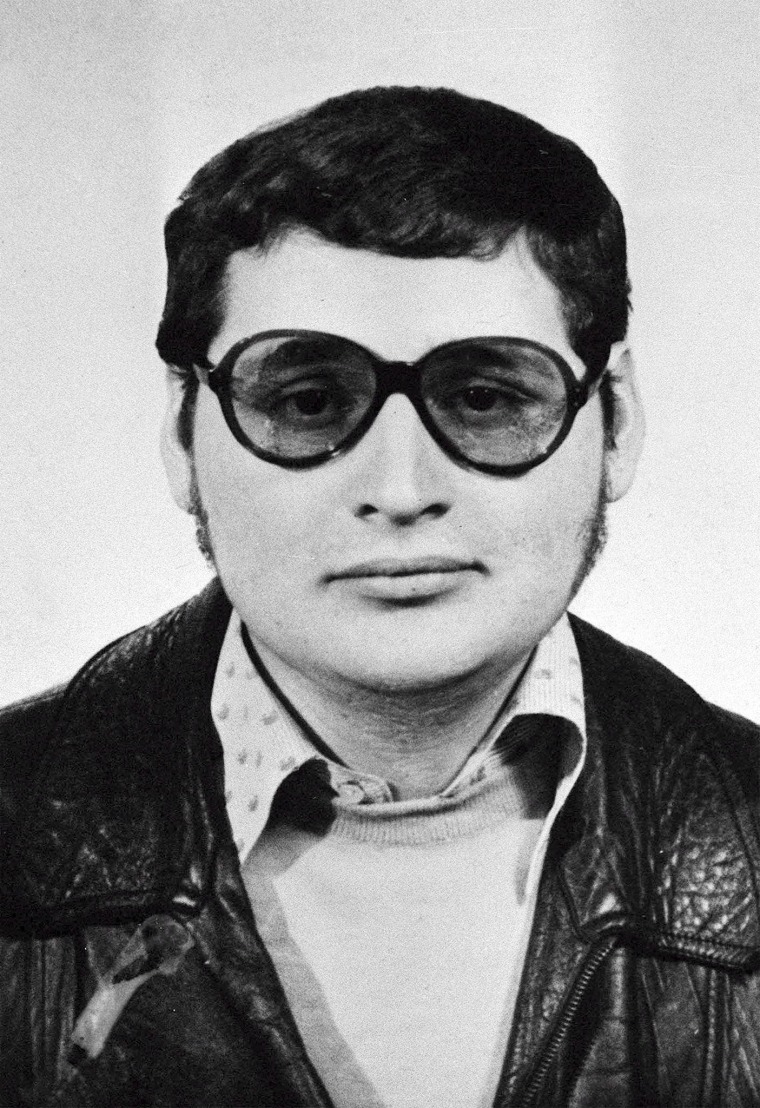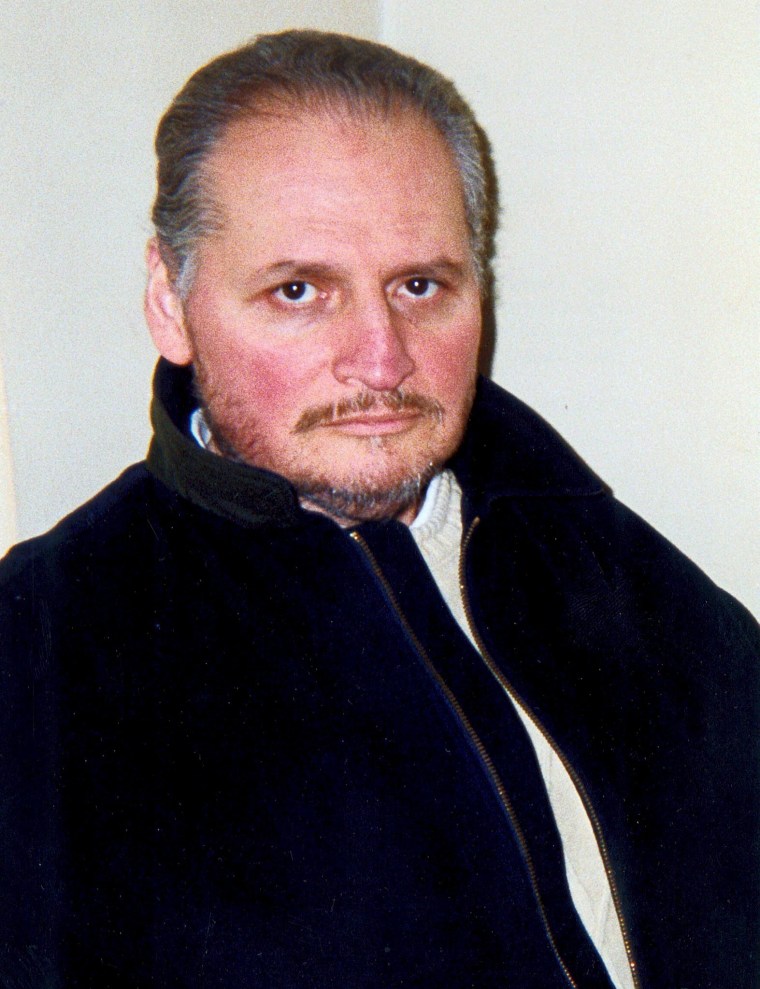PARIS — Once the world's most-wanted fugitive, the political terrorist known as Carlos the Jackal appeared in a French court Monday over a deadly 1974 attack at a Paris shopping arcade.
The Venezuelan-born Ilich Ramirez Sanchez is accused of throwing a hand grenade from a mezzanine restaurant into a shopping area in the the Latin Quarter of Paris. Two people were killed and 34 injured.

The 67-year-old is already serving a life sentence in France for a series of murders and attacks he has been convicted of perpetrating or organizing in the country on behalf of the Palestinian cause in the 1970s and 1980s.
If convicted of first-degree murders in the latest trial, the Marxist guerrilla who became a symbol of Cold War anti-imperialism could get a third life sentence.
As the trial opened Monday, Carlos denounced it as a "gross manipulation of justice" 42 years after the attack. He has denied involvement and pleaded innocent.
Asked to state his profession before the court, he called himself a "professional revolutionary," and said "I'm doing fine" in prison — after more than 20 years behind bars.
At the time of the attack, Ramirez Sanchez had not yet been dubbed "Carlos the Jackal." He was 24 years old and already had joined the organization Popular Front for the Liberation of Palestine.
When police arrived, they found a devastated mall with all the windows shattered, multiple bloodstains and a hole in the marble slab of the ground floor where the grenade fell. The two men who died were hit by metal chips that perforated vital organs and caused large internal bleeding, according to court documents.
Carlos has pleaded innocent and denied involvement in the case. His long-time lawyer and fiancé, Isabelle Coutant-Peyre, claims that none of the witnesses from the trendy Drugstore Publicis restaurant had described a man resembling her client, and that the whole case was trumped-up.
"I am the only survivor ... because I used to shoot first"
Yet an Arab language news magazine in France, Al Watan Al Arabi, published a long interview with a man it identified as Ramirez Sanchez five years after the attack. He allegedly claimed he had personally thrown the grenade into the restaurant, described the full details of the operation and explained why it was carried out. Carlos later disputed he had given the interview.
In the 1979 article, the man said to be Carlos said he attacked the Drugstore Publicis to pressure for the release of a Japanese activist arrested in France two months earlier. The attack, he said, came as a backup operation for a hostage-taking that was then ongoing at the French Embassy in the Netherlands.
It was in the name of the Palestinian cause that he subsequently became the military chief of the PFLP in Europe, claiming the "operational and political responsibility" for all the operations of the group on the continent and also for "all the wounded and all the dead," according to court documents.
"I am a hero of the Palestinian resistance, and I am the only survivor of (the group's) professional executives in Europe because I used to shoot first," he told investigators.

Ramirez sealed his notoriety by taking OPEC's oil ministers hostage in the name of the Palestinian struggle, in an attack in which three people were killed, and went on to be an international gun-for-hire with Soviet bloc protectors.
But the revolutionary mystique he once enjoyed — helped by a Che Guevara beret, leather jacket and dark glasses — wore thin after he was captured in Sudan in 1994 by French special forces.
The case took so long to go to trial because it was first dismissed for lack of evidence before being reopened when Carlos was arrested and imprisoned in France. His lawyers introduced challenges at every stage of the proceedings.
Prosecutor Remi Crosson du Cormier argued that the trial remains relevant today. "Democracy has two principal enemies — totalitarianism, and terrorism," he said, suggesting that Carlos is among "those who threaten democracy by their actions."
The case is being heard by a special court made up of professional judges and with no jurors, as is the custom with terrorism trials in France.